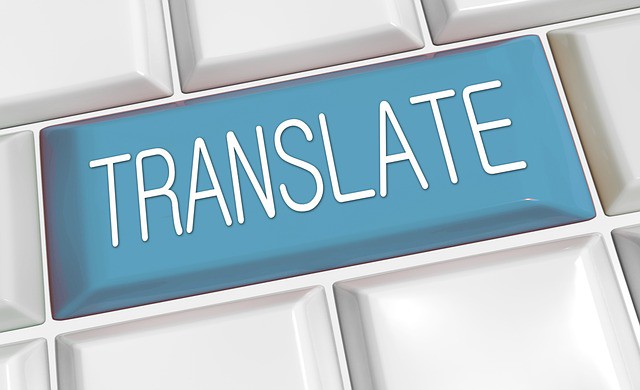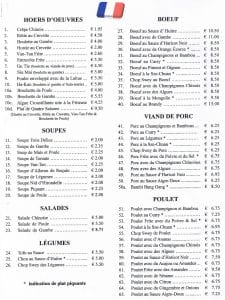Computer Assisted Translation
Computer assisted translation first began with the invention of electronic multilingual dictionaries, where the user would enter a word in one language and the small calculator sized device would return the translation of the word. These devices were a handy replacement for paper dictionaries but their usefulness ended there.
Over the last 25 years there has been a massive improvement in computer aided translation and in this page we will look at a few of the exciting technologies that have emerged, including near-instant:
- Webpage translation
- Document translation
- Audio translation

Computer Aided Translation
Instant webpage translation
Google and other websites now offer an instant translation service, where you type in the address of a website and they instantly translate the page, as if the site were written in your native language.
Extremely useful for:
- Ticket booking sites that don’t have an English language option
- Researching local areas in foreign countries
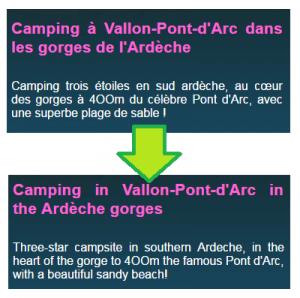
Hard copy (printed document) Translation
When you go on holiday abroad most hotels and tourist restaurants offer English language menus. However, as soon as you start to venture outside of the tourist areas, you will often find yourself sat in front of a menu where you have no idea what anything is! This is made even more difficult in places like Vietnam, Thailand and Japan, where the menu won’t even be written in the Roman alphabet!
This is often leads to ‘Lunch Roulette’, where you point at something on the menu and you see what you get. Sometimes this works out really well as you might find a new favourite dish, but sometimes you end up sat in front of a plate of chicken feet, finding that your appetite has deserted you (yes, this happened to me…)
Instant document translation apps allow you to point your camera at the menu and any text that is in front of you is instantly translate in to your own native language!
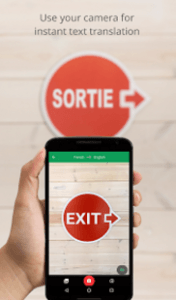
Live Audio Translation
Instant audio translation, where a person speaks in one language and the other person in the conversation in their native tongue, has long been the stuff of science fiction. Star Trek, Star Wars and Hitch Hiker’s Guide to the Galaxy have all featured the devices in one form or another. Science fiction is rapidly becoming science fact, with prototype devices now being developed, with some services being live tested at the recent Rio Olympics.
This is hardly surprising, given that the necessary technology is now available:
- Speech-to-text software
- Instant Translation software
- Text-to-speech software
- Smartphone hardware

The likely translation process:
- Earpiece receives spoken French and records words spoken.
- Earpiece sends the recording to the phone app.
- The app uses speech-to-text software to decode the words in to French text.
- Translation software converts the French text to English
- Text-to-speech technology produces an audio file
- The app sends the sound recording to the earpiece
- The earpiece plays the sound like a normal set of earphones.
Activity 1 – Camping holiday planning
I recently planned a camping and canoeing holiday to the south of France in the region called the Ardeche (when you get the chance, go there it’s awesome!).
I didn’t want to go the a big international campsite, which all had an English language version of the site, so I used Google translate extensively to help me plan my trip.
Here is the web address of a campsite I was interested in.
http://www.camping-ardeche-midi.fr/
Using Google Translate, see if you can find out:
- How much does the shuttle to Vallon-Pont-d’Arc cost?
- How does it cost for 3 people with a caravan for the night?
- What activities can you do whilst canoeing down the river?
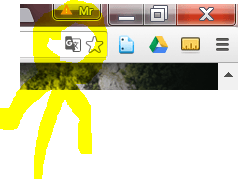
Google Translate button
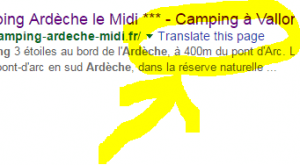
Google search translate link
Activity 2
Translate a menu using Google Translate instant translation app.
- Download / Open / Print the Menu on the right hand side.
- Download the ‘Google Translate’ app from the app store.
- Use the instant translate service to translate the menu.
Questions
- How much is beef with Chinese Mushrooms
- What is item number 56?
- Which soup would you choose to have as a starter?
- What words doesn’t it translate well?
